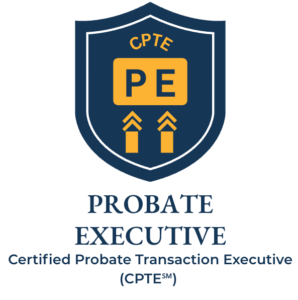Protect Your Practice with Probate Risk Mitigation
How traditional real estate vendors create non-obvious procedural risks—and why you need an operational partner.
The 3 Ways Most Agents Expose Your Firm to Liability
The greatest liability in a probate sale isn’t a market crash; it’s a breakdown in procedure. Most real estate agents, even those with a “probate certification,” are trained as sales vendors, not as operational partners. They are conditioned to “get the listing,” which causes them to overlook the fiduciary-grade discipline required to protect your practice.
This creates a pattern of small, preventable failures that expose your firm to non-obvious risks.
1. Mishandled Communication & Documentation
What it looks like: Giving unqualified “legal” or “financial” advice to heirs, making verbal promises, or starting beneficiary disputes by sharing information unevenly.
Why it’s a risk: These undocumented, “he said, she said” conversations create a procedural mess. They can lead to beneficiary challenges, delay the case, and force your firm to waste non-billable hours managing disputes that the agent created.
2. Poor Financial Tracking & Accounting
What it looks like: The classic “shoebox of receipts.” The agent pays for repairs, cleaning, and hauling with cash or personal cards and fails to provide a clean, itemized ledger.
Why it’s a risk: Your paralegal is forced to waste time chasing down invoices, and you are left to submit a final accounting to the court that is disorganized and vulnerable to challenge. Every unaccounted-for dollar is a potential liability.
3. Ignoring Procedural Discipline
What it looks like: Operating with a “sales first” mindset. This includes ordering expensive repairs before court authorization, ignoring legal deadlines, or failing to meticulously document property condition at the time of appointment.
Why it’s a risk: Every action taken out of sequence or without proper authorization is a potential breach. It undermines your legal strategy and creates a pattern of negligence that can be used against your client (the Personal Representative) and, by extension, your firm.

